Staring at screens can harm your eyes. This is when your eyes get tired from looking at screens. This problem can make your eyes tired and hurt and give you headaches and pain in your neck and shoulders. Looking at screens can hurt our eyes. But we can do things to stop it and keep our eyes healthy. This article will help you keep your eyes safe when using computers and phones. It will help you prevent eye strain and be productive.
Contents
- Understanding the Causes and Effects of Digital Eye Strain:
- Ergonomics and Workspace Optimization:
- Adjust the computer screen accordingly:
- Take Regular Breaks and Practice the 20-20-20 Rule:
- Adjust Display Color Temperature:
- Use Eye Lubricating Drops:
- Limit Screen Time Before Bed:
- Reduce Screen-related Eye Stress:
- Eye-Friendly Habits and Self-Care:
- Consideration of Blue Light Filters and Eyewear:
- Conclusion:
Understanding the Causes and Effects of Digital Eye Strain:
Staring at screens can make your eyes tired and uncomfortable. Looking at bright screens in the dark can tire and hurt your eyes. Screens have a light that can hurt our eyes and make sleeping hard. Using screens too much can harm your eyes. Instead, do things to make your eyes feel good. The article has a list of steps.
-
Ergonomics and Workspace Optimization:
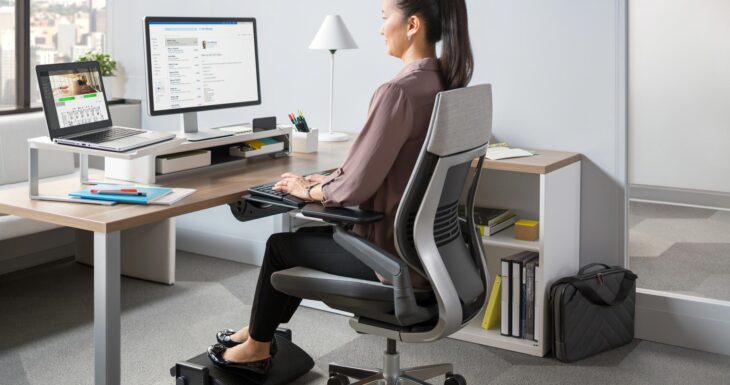
Source: yournbs.com
By sitting up straight and configuring your screen appropriately, eye strain can be prevented. Sit straight when using phones or laptops to avoid eye and physical discomfort. Sit on a chair that supports your neck and back. Keep your feet on a flat surface or a footrest. Your screen should be at eye level to prevent head cocking.
This alignment allows your eyes to gaze straight ahead, minimizing strain on your neck and reducing the risk of developing discomfort. In addition, consider investing in ergonomic furniture, such as adjustable desks and chairs, to customize your workstation according to your body’s needs and promote healthy posture.
-
Adjust the computer screen accordingly:
Put your computer screen at a comfortable distance and height. This helps your eyes not get tired from looking at the screen. Make the screen brighter or darker and clearer, and use a special screen or filter to reduce glare. Good lighting is important for your workspace. Too much or too little light can hurt your eyes. Put your desk where you won’t see reflections or bright lights from windows or ceiling.
-
Take Regular Breaks and Practice the 20-20-20 Rule:
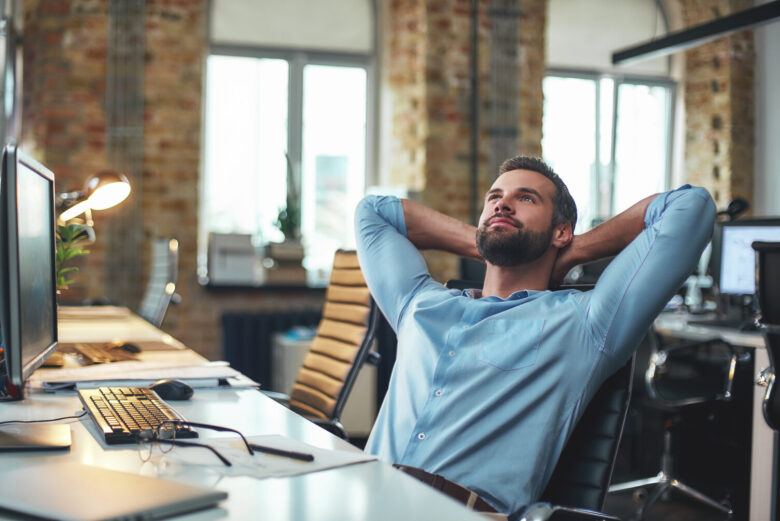
Source: prevuehr.com
To help your eyes feel better, take breaks from looking at screens for a while. Take a break every 20 minutes and look at something 20 feet away for 20 seconds. This helps your eyes feel less tired by relaxing the muscles that help you focus. Take short breaks and do easy eye exercises like blinking quickly or moving your eyes in circles to help your eyes feel better.
-
Adjust Display Color Temperature:
You can change the color of your screen on most digital devices. Make the screen look warmer by turning on “night mode” or “warm light” settings. You can make the screen emit less blue light to help your eyes feel better when you look at it, especially at night. Warm colors are easier on your eyes than bright blue light.
-
Use Eye Lubricating Drops:
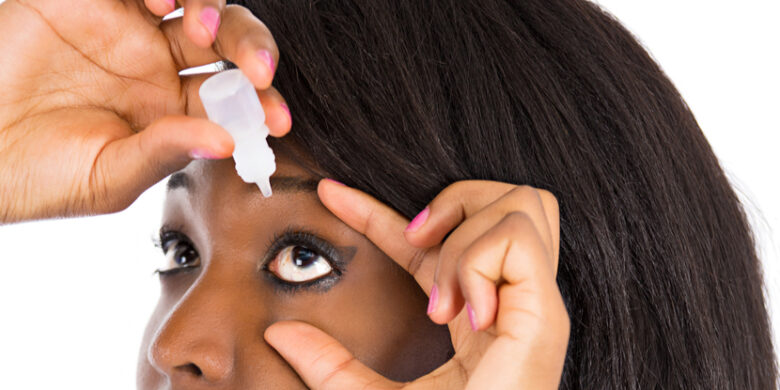
Source: aao.org
If your eyes feel dry and uncomfortable when you use a screen for a long time, try using eye drops that can help make them feel better. These drops help with dry eyes and make them feel better. Also, putting eye drops in your eyes during the day can help keep them wet and stop them from feeling dry and uncomfortable.
Pick drops without preservatives. Follow the instructions on the package or ask an eye specialist for advice that fits you.
-
Limit Screen Time Before Bed:
Looking at screens before bed can make it hard to sleep well. Screens emit blue light that can stop the body from making a hormone that helps us sleep. To sleep better and protect your eyes, avoid screens for at least an hour before bed.
Do things that make you feel calm, like reading, relaxing, or doing a hobby without using a screen. Resting your eyes and brain before sleeping helps you sleep better and reduces the risk of eye strain symptoms.
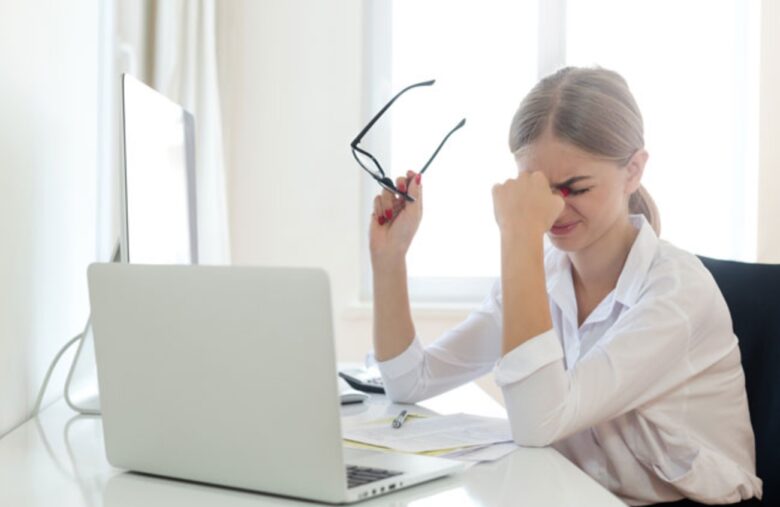
Source: hopkinsmedicine.org
Changing your screen settings can help your eyes feel better. Make the words bigger and easier to see so reading is easier. Make your screen brighter or dimmer based on how bright or dark it is around you. Make the screen brighter when it’s dark and dimmer when it’s bright. Finally, wipe your screen with a soft cloth to remove dirt and fingerprints. This will help you see better.
-
Eye-Friendly Habits and Self-Care:
Take care of yourself and make good habits to avoid hurting your eyes from screens. Remember to blink when using screens to keep your eyes from getting dry. Water is good for your eyes. Eat healthy foods that help your eyes, like those with vitamins A, C, and E and omega-3 fatty acids.
Checking your eyes often is important to find and fix vision problems fast. You can cover your eyes with your hands and do some eye exercises to make your eyes feel better. This can make you feel good and help your eyes not get tired.
-
Consideration of Blue Light Filters and Eyewear:
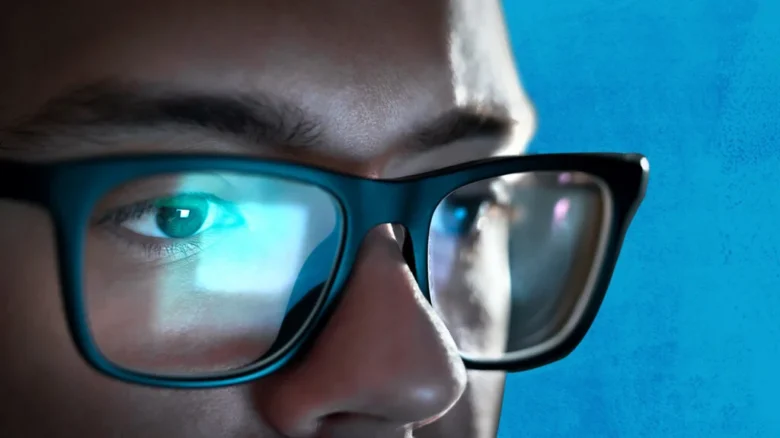
Source: medicalnewstoday.com
Blue light filters can help protect your eyes from the harmful light from digital screens. You can get them as a screen protector or a software app. These filters stop blue light but let other colors go through. Use a blue light filter on your screen to help you sleep better and avoid the harmful effects of blue light.
You can talk to an eye doctor about glasses that block blue light. These glasses protect your eyes when you look at screens for a long time by blocking the blue light.
Conclusion:
It’s important to care for our eyes because we often use screens. Looking at screens for too long can make our eyes feel bad and make it hard to work well. We can keep our eyes healthy by doing things to prevent problems and being careful with how we use them.
Taking care of yourself by doing simple things like blinking, drinking enough water, and eating healthy food can too help keep your eyes healthy. We should balance technology and eye care to see well in the digital age.
